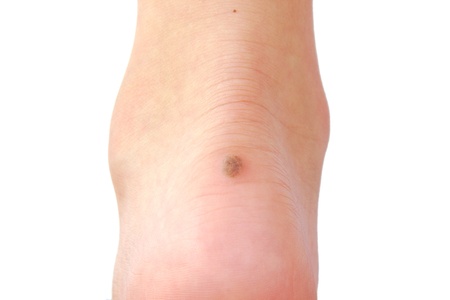
Cancer is a terrible disease that affects and claims the lives of hundreds of thousands of Americans each year. In males, the most common types of cancers are prostate cancer, lung cancer, colon cancer, and bladder cancer. In females, the most common types of cancers are breast cancer, lung cancer, colon cancer, and uterine cancer. It might come as a surprise to some people that the skin and bones of the feet are susceptible to cancers and growths as well. Some are benign, and some are malignant, but it is important to take them all seriously since it is often difficult to tell the difference early on. Here are some cancers or growths that may be found in the feet:
- Giant cell tumors: These benign tumors are irregular masses that form inside the tendon sheath in the toes, on the top or side of the foot, or deep within the foot. They are firm and become more painful over time, but they are uncommon.
- Melanoma, or skin cancer: The feet are covered up most of the time, so they are often overlooked when screening for skin cancer. However, skin cancer can be caused by more than just the sun. It is important to immediately see a doctor for any growth that changes shape or color.
- Osteochondromas: After an injury to the toe, a benign bone tumor may lead to the formation of an osteochondroma under the toenail. They do not typically cause pain, but can irritate the surrounding tissue or deform the toenail. On rare occasions, they can become malignant.
- Plantar fibromas: Plantar fibromas are tumors that grow on the plantar fascia, which is the tendon that runs the length of the bottom of the foot. If they become painful, they might require surgery.
Some growths, like melanomas, grow on the surface of the skin and may be easier to detect. However, others, like giant cell tumors or plantar fibromas, may be located deep in the tissue, and the only indicator might be sudden discomfort or pain. At Syracuse Podiatry, board-certified podiatrist Dr. Ryan L. D’Amico can use diagnostic imaging techniques like x-rays to determine if anything abnormal is going on beneath the surface. At his office in Fayetteville, he can also treat diabetic wounds, sports injuries, and more. Contact us or call us at (315) 446-3668 to make an appointment today!
